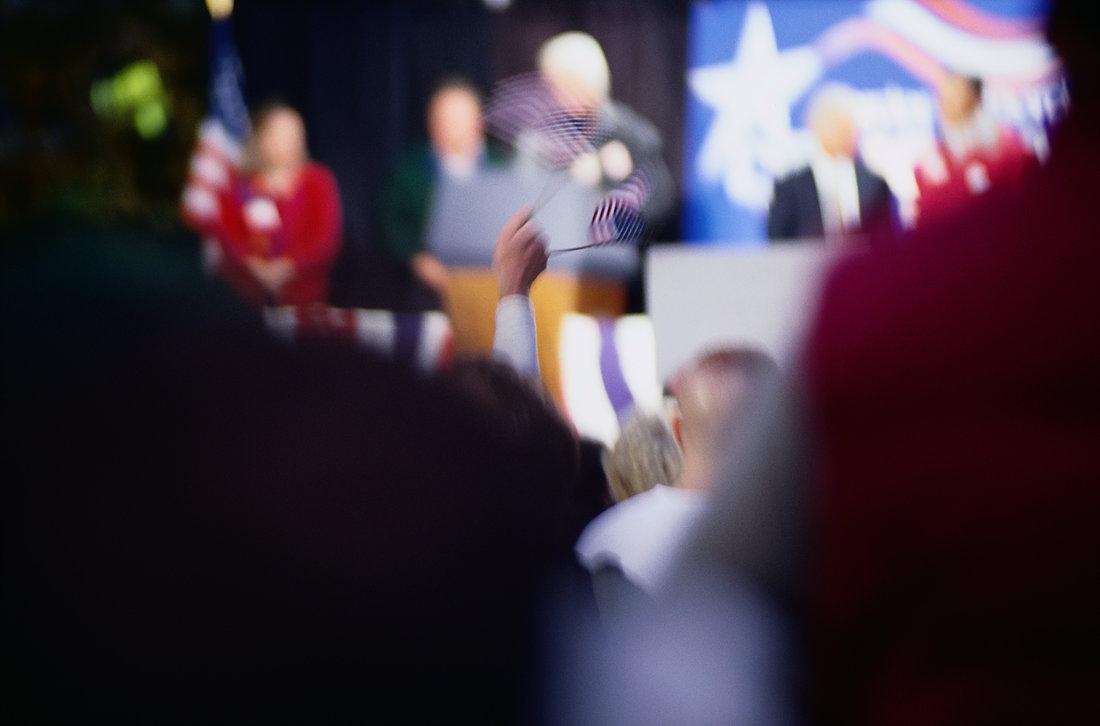Puerto Ricans Are Welcome to Serve in the US Military…but Are Forbidden to Vote in US Presidential Elections

 People at a Political Rally
People at a Political Rally
Kate Rubins is a 38-year-old astronaut for NASA — born in Connecticut and raised in California. She is one of the few Americans ever to cast a vote from outside Planet Earth; she cast her vote for President in the 2016 US election from the International Space Station, which soars hundreds of miles above Earth’s atmosphere. But Rodney Cruz, a US military veteran who served in Iraq, did not have the right to vote at all on November 8th – because he is a resident-citizen of Puerto Rico. If you are an American from any of the fifty states, you can cast a vote from anywhere in the world — even from outer space. But if you are a resident of Puerto Rico, which is also part of the United States — it is a territory of the US, and subject to laws that the US makes about Puerto Rico; governed by a governor appointed by the US Federal government — you cannot cast a vote for the American President at all.
PR 51st, a website that supports Puerto Rico becoming the 51st State, says “people from Puerto Rico can vote in Presidential elections if they move to a State. People from States can’t vote in a Presidential election if they move to Puerto Rico.”
According to the Bristol Herald-Courier, “according to Article IV of the US Constitution, a territory is subject to and belongs to the United States, but is not necessarily within the national boundaries or any individual state.” The Constitution also provides for Congress making all laws and rules about that territory. (Remember, much of what is now the Continental US was once “territory” of this kind.) Supporters of Puerto Ricans having the same rights as Americans living in the States, say that restriction of Puerto Ricans voting is unfair; critics of such a claim for more voting rights, say that territories are not really part of the US.
Resident-citizens of today’s United States territories have fewer voting rights than do those Americans living within the fifty states. Puerto Rico, for instance, still has no representation at all in Congress, and also does not have any representatives in the Electoral College. Puerto Rican citizens do have a right to vote in the US primaries, but citizens cannot cast a vote on November 8.
Andres Lopez, a lawyer from San Juan, Puerto Rico, voiced his disappointment in what he calls this restriction of rights:
“So this year I have to sit it out. I can vote in local elections, but I can’t go out and cast a ballot for President or Congress or for Senate. Which is actually terrible — and not just an indignity, it’s absolutely un-American.”
Representative Alan Grayson (D-Fl), has, in response to this sentiment, sponsored House Joint Resolution 105, “Proposing an Amendment to the Constitution of the United States to Treat Puerto Rico as if it Were a State for Purposes of the Election of the President and Vice President.” This bill proposes an amendment to the Constitution, that will give Puerto Rico citizens full voting rights in US Presidential elections.
Puerto Ricans became US citizens in 1917, but because they don’t live in a state, and the electors in the electoral college must come from a state, this glitch means that they can’t vote for President.
If passed, HJR 105 will allow the election of US Representatives and Senators from Puerto Rico. From this group will be appointed or elected a select number of electors to the electoral college.
Supporters say that this bill corrects a denial of their basic rights as people who are not truly independent from the US and wish to have a say in who governs them as President. Critics say that Puerto Rico is not really fully yet part of America.
Do you think Puerto Ricans living in Puerto Rico should vote for the US President, just as citizens living in Alaska or Alabama do? Or do you think that this bill would extend full US rights to people living in what are not states but territories, unreasonably?
Share your thoughts in the comment section to show your support for or opposition to Representative Grayson’s bill, and share this article through your social networks.




